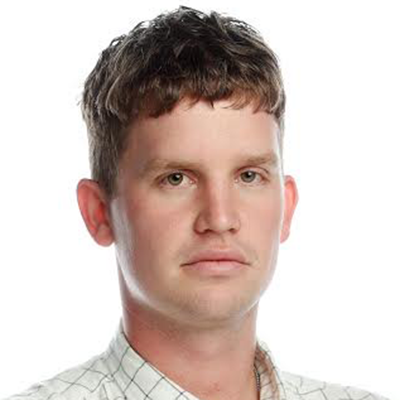Sydney lightning strikes: Elderly woman fighting for life and surfer taken to hospital
An elderly woman is fighting for life after being struck in the chest by lightning while standing under a tree in Arcadia and a surfer is in hospital after lightning struck him as he left the water at Dee Why on Monday.
NSW
Don't miss out on the headlines from NSW. Followed categories will be added to My News.
A surfer and an elderly woman have been hit by two “terrifying” lightning strikes just 10 minutes apart on the northern beaches and in Sydney’s northwest.
The woman, aged in her 70s, was fighting for her life last night after being struck in the chest while standing under a tree on her property in Arcadia about 5.15pm.
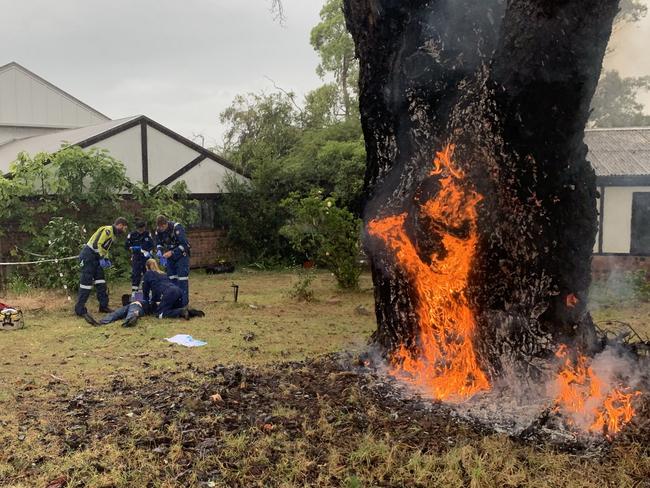
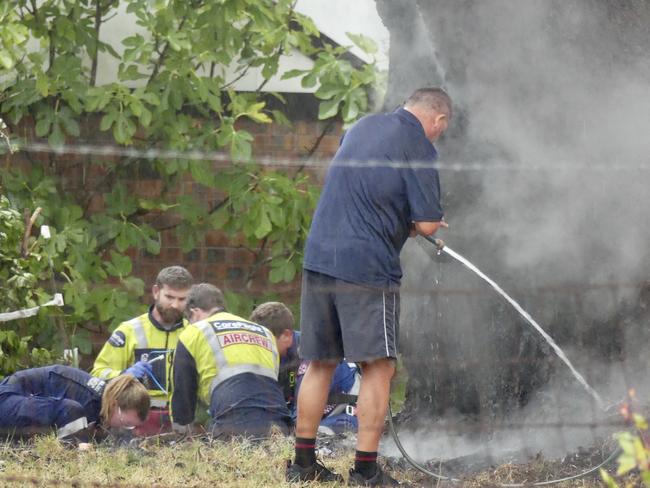
The woman was flown to Westmead Hospital by the CareFlight Rapid Response Helicopter undergoing CPR.
She was later taken to Royal North Shore Hospital in a critical but stable condition.
Just 10 minutes later a 29-year-old man was struck while carrying his surfboard out of the water on Dee Why beach.
The Daily Telegraph understands the man had gone into cardiac arrest but was revived.
He was taken to RNS Hospital in a serious but stable condition.
Beachgoers, swimmers and surfers rushed to him to get him out of the waist-deep water and called paramedics.
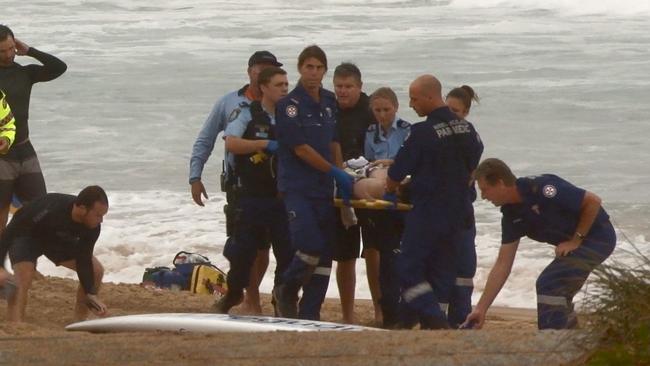
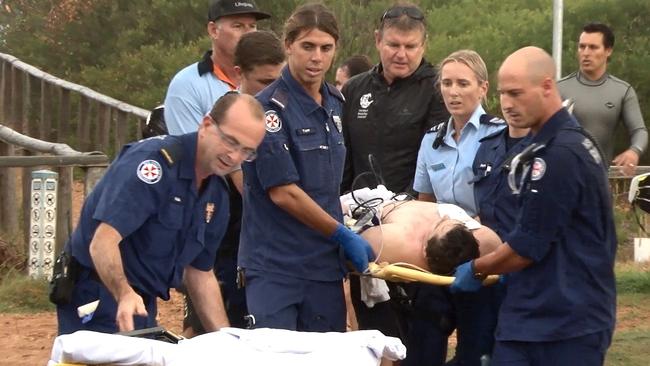
While being carried off the beach the injured man was wide-eyed and looked in disbelief. Other surfers patted his chest and rubbed his hair.
He remains at Royal North Shore in a serious condition.
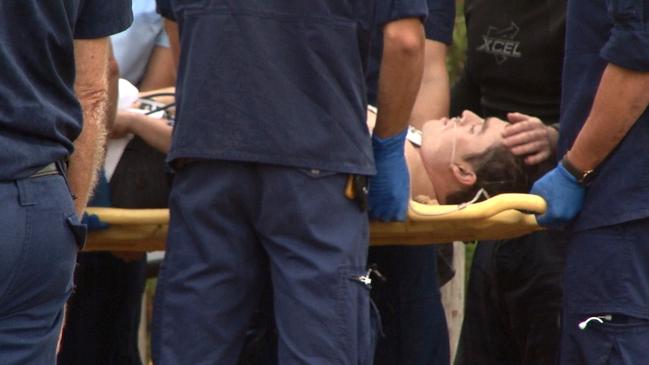
NSW Ambulance duty operations manager inspector Carolyn Parish said she had never seen two strikes in a day.
“These are extraordinary circumstances. This is the first time I have ever come across two lightning strikes within 10 minutes — it's terrifying,” she said. “Paramedics had to work quickly at the scene – they want to get in there and do whatever needs to be done to save a life, often putting their own safety as risk,” Inspector Parish said.
“How you react to being hit by lightning depends on the circumstances and where you have been hit – most people will go into cardiac arrest so those first moments of CPR are vital.”

